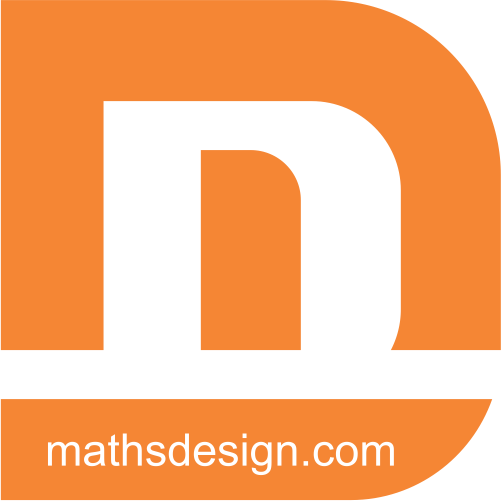Mathematics
The history of mathematics
The history of mathematics is a fascinating journey that spans thousands of years, with contributions from various cultures and civilizations. Here is over overview of some key milestones in the development of math:
Ancient Mathematics:
The earliest known mathematical records date back to ancient civilizations such as the Egyptians, Babylonians, and Greeks. The Egyptians used mathematics for practical purposes like measuring land and building structures. The Babylonians developed advanced arithmetic and algebraic techniques, and the ancient Greeks made significant contributions to geometry, including Euclidean geometry.
Indian Mathematics:
India also has a rich mathematical heritage. The ancient Indian mathematicians made remarkable advances in arithmetic, algebra, and trigonometry. One of the most significant Indian mathematicians was Aryabhata (476-550 CE), who wrote the Aryabhatiya, a treatise on astronomy and mathematics.
Islamic Mathematics:
During the Islamic Golden Age (8th to 15th centuries), scholars in the Islamic world preserved and expanded upon the knowledge of ancient civilizations. Mathematicians like Al-Khwarizmi, known as the “Father of Algebra,” contributed to algebra and introduced the decimal system to the West.
Renaissance and European Mathematics:
The European Renaissance (14th to 17th centuries) witnessed a revival of interest in classical learning, including mathematics. Mathematicians like Leonardo da Vinci, Johannes Kepler, and Galileo Galilei made significant contributions to various mathematical disciplines.
Development of Calculus:
In the 17th century, Isaac Newton and Gottfried Wilhelm Leibniz independently developed calculus, a branch of mathematics that deals with rates of change and accumulation. Calculus revolutionized physics, engineering, and many other fields.
18th and 19th Centuries:
Mathematics continued to progress in the 18th and 19th centuries, with significant developments in algebra, number theory, and geometry. Carl Friedrich Gauss, often referred to as the “Prince of Mathematicians,” made groundbreaking contributions during this time.
20th Century and Beyond:
The 20th century saw revolutionary advancements in various branches of mathematics, including set theory, abstract algebra, topology, and mathematical logic. Mathematicians like Kurt Gödel, Alan Turing, and John von Neumann played crucial roles in shaping modern mathematics.
Applied Mathematics:
As mathematics developed, its applications to science, engineering, economics, and other fields became increasingly important. The use of mathematics in solving real-world problems and modeling complex phenomena expanded significantly.
Computer Age:
With the advent of computers, mathematical methods, and algorithms found new applications in computation, cryptography, data analysis, and many other fields.
Today, maths continues to evolve and play a critical role in our modern world. It is an essential tool in scientific research, technology development, finance, and many other areas of human endeavor. The history of math showcases the continuous quest for knowledge and the power of human intellect in understanding and describing the universe.
Mathematics is a field of study that deals with the study of numbers, quantities, shapes, structures, patterns, and their relationships. It is often referred to as the “language of science” because it provides a powerful and precise way to describe and understand the natural world. Math is a fundamental part of human culture and has been developed and studied for thousands of years.
Key aspects of mathematics include:
Arithmetic: The basic operations of mathematics, such as addition, subtraction, multiplication, and division, fall under arithmetic. It deals with the manipulation of numbers and their properties.
Algebra: Algebra involves the study of symbols and letters to represent numbers and quantities in general. It includes solving equations, manipulating expressions, and understanding patterns and relationships.
Geometry: Geometry focuses on the study of shapes, sizes, and properties of space. It includes understanding points, lines, angles, surfaces, and solids.
Calculus: Calculus deals with the study of change and motion. It includes concepts like derivatives and integrals and is essential for understanding rates of change and accumulation.
Statistics: Statistics involves the collection, analysis, interpretation, presentation, and organization of data. It is widely used in various fields to make informed decisions and draw conclusions from data.
Discrete Mathematics: Discrete mathematics deals with discrete structures, which have distinct, separated, and countable elements. It is used in computer science, cryptography, and various other applications.
Probability: Probability is the study of uncertainty and chance. It deals with the likelihood of events happening and is extensively used in statistics and decision-making.
Mathematics is not just a set of rules and formulas; it is a way of thinking and problem-solving. It provides a systematic and logical approach to analyze complex situations, make predictions, and discover new patterns and relationships. Maths has profound applications in various scientific, engineering, economic, and social disciplines.
The study of math is divided into various branches, each with its specialized topics and applications. As mathematics progresses, it continues to be a foundational subject for advancements in science, technology, and our understanding of the world around us.
Math
-
Basic Math
-
Numbers
-
Real Numbers
-
Rational Numbers
-
Irrational Numbers
-
Integers
-
Fractions
-
Proper Fractions
-
Negative Integers
-
Zero
-
Whole Numbers
-
-
Positive Integers
-
Natural Numbers
-
Even Numbers
-
Odd Numbers
-
Prime Numbers
-
Composite Numbers
-
-
-
-
Mixed Fractions
-
Improper Fractions
-
-
-
-
Complex Numbers
-
Imaginary Numbers
-
-
Numbers in Different Languages
-
Number Notation
-
Math Symbols
-
Mathematical abbreviations
-
Math Formulas
-
Math Tables
-
Addition Table
-
Subtraction Table
-
Multiplication Table
-
Division Table
-
-
Algebra
-
Geometry
-
Trigonometry
-
Statistics
-
Calculus

Recent Comments